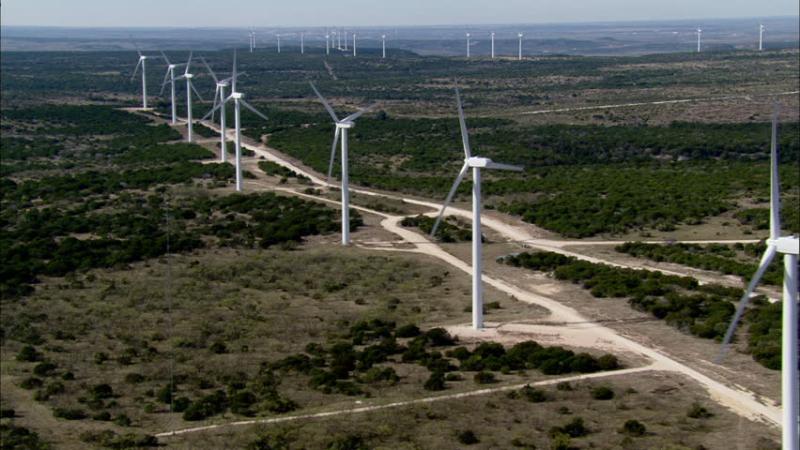Energy Policy After the Texas Blackouts
By: WSJ



Before the Storm
The recent blackouts in Texas are a cautionary tale of reckless opposition to natural-gas development leading to disaster. Grid failures will only become more common as the left continues to sabotage America's No. 1 power source.
Prior to starting graduate school, I worked as an engineer on natural-gas pipelines in Texas. I saw how a radical, antiscience faction on the political left does everything in its power to make building, operating and maintaining gas pipelines prohibitively difficult. Pandering to these activists and voters, Democratic leaders impede natural-gas projects through punitive regulations, endless reviews and flat-out refusals to approve new projects. Ironically, those quickest to blame natural gas for this current crisis in Texas are the ones who have worked the hardest to create barriers to the improvement, modernization and expansion of America's pipelines.
Attempts to discount the effects of these policies by citing Texas’ pro-energy culture are unconvincing. Pipelines pass through multiple states and are heavily regulated by the federal bureaucracy. The problem is likely to get worse under President Biden, who has already canceled the Keystone XL pipeline and appointed Rep. Deb Haaland, an opponent of oil-and-gas exploration, to lead the Interior Department. But no matter how much people love to signal opposition to hydrocarbons, they still get upset when they actually have to live without their fossil fuels—and the lights go out.
—Jacob Saldinger, University of Michigan, chemical engineering (Ph.D.)
Power Through the Blackouts
In Texas, wind-energy infrastructure wasn’t the chief contributor to the blackouts. Scapegoating it as such misunderstands the root of the issue. If anything, the failure of natural-gas production during the winter storm represents another excellent reason to invest more aggressively in green energy solutions across the nation.
The storm in Texas and the recurring wildfires in California are direct results of climate change and our collective reluctance to take meaningful action against it. Blackouts and other infrastructure failures are only a symptom of the pressing and increasingly frequent climate emergencies. Shifting our reliance from fossil fuels to renewables where possible will help to slow the progression of climate change and avoid repeating these grid failures. Increased federal and state investment in immediate action to combat climate change is our best, and perhaps our only, way forward.
—Carolyn Breckel, Yale University, molecular biophysics (Ph.D.)
Preparing for a Black-Swan Event
The crisis in Texas quickly devolved into a political spectacle as progressives and conservatives dug themselves into competing narratives and blamed each other for the root causes of the state’s ills. According to these accounts, Texas’ electrical problems stemmed from either an overreliance on fossil fuels and too little government regulation or an overdependence on renewables and too much government intrusion via green subsidies.
In reality, Texas’ energy grid is designed to endure the brutal heat that comes each summer, but not a once-in-a-generation freeze like last week’s. Because the grid has not been winterized to withstand such extreme conditions, large portions of critical infrastructure—including wind turbines and natural-gas pipelines—froze and shut down. The real controversy surrounds state leaders’ reluctance to mandate winterization following storms in 2011 and 2014. Although this lack of action appears foolish in hindsight, those storms were not as extreme, and ensuring the entire state’s energy infrastructure against an improbable event like last week’s would have been expensive. The resulting increase in energy costs for millions of Texans would have made any serious proposal dead on arrival.
The past year has shown us, however, that black swans do exist. Texas’ citizens and leaders must now decide if higher energy prices are a cost worth bearing to ensure against another icepocalypse. Let’s hope politics stays out of the decision making.
—Jack Chapman, University of Texas at Austin, finance and government
What’s Sustainable?
The intentions are good, but moving too fast toward a sustainable future leads to severe problems like the ones we have seen in California. Take the Golden State’s unrealistic plan to ban the sale of all new gasoline-powered passenger cars and trucks by 2035. The grid has shown it can’t keep up with demand as it is. How will it fare with so many new electric vehicles? It would make more sense to implement a tiered approach. Continue to invest in renewable energy and EVs, but keep natural gas and oil readily available. While this may slow the shift to renewables, we can’t have blinders on; it is also important to ensure that communities can function on a daily basis. That’s part of sustainability, too.
—Andrew Hipple, Pennsylvania State University, accounting and psychology
One Can Hope
The Republicans say a transition to a green economy will be painful, and they see no urgency to do it, anyway. The Democrats recognize the urgency but say the transition will be quick and painless. Each vision is at best half true. Strong action now would require political courage, and it is a feature, not a bug, of representative democracy that such courage is rare. We can only hope that Texas’ blackouts will change the conversation.
Perhaps Democrats will come to accept nuclear power. If climate change really is an existential threat, then the rejection of a clean and efficient energy source is hard to justify. Maybe Republicans will accept a carbon tax. Even if it is bad for their districts, it is better than a Green New Deal.
The events in Texas could spur climate-conscious people to learn about the technical side of the issue. Maybe they’ll learn the oil industry is a source not only of carbon emissions, but also of the feedstocks used to make advanced materials needed for energy-efficient homes, the chemicals used to make solar panels, and so much more that is necessary for a green future. About this, I have more hope than confidence.
—Brendan Sayers, University of Connecticut, electrical engineering









There needs to be a realistic balance between Green Energy & fossil fuel energy.
[DELETED]
The storm in Texas and the recurring wildfires in California are direct results of climate change and our collective reluctance to take meaningful action against it.
Wild ass assumption unsupported by factual evidence
Just words.
Why?
When technology has progressed sufficiently for green energy to handle the demand, why keep the non-renewing, polluting, fossil fuel in the mix?
That appears to be a long way off. When that day comes we can have that conversation.
Smaller countries are already taking that step. Not that long off.
Then it is too late. You invest money, time, and thought to make it happen. You can't just ignore it assuming it will happen.
If this article starts out with a lie then there is no reason to read any further.
I been saying it and saying it. Ain't I been saying it? I been saying it.
Yeah, it's easy in hindsight to say "they shoulda done this or that" but no one wants to talk about the practical and economic aspects of actually doing it in advance - when the worst ever event hasn't actually happened yet and you have other shit to pay for.
A generation = 20 - 30 years. This just occurred 10 years ago, so it is at least twice, or more, in a generation. The article seems to ignore the cost of human life each time this occurs
So how many Texan lives lost would make it worth the cost? Just a general estimate will do.
They did it for the rest of the country.
Who did what?
The grid in the rest of the country has been created with the robustness to withstand weather extremes. Granted, a downed line is a downed line, but that is not the issue here. the issue is that the grid failed to keep up with demand and had a cascade affect on the heat and water throughout the state.
It is a failure of engineering and was right there for everyone to see. I bet that those people in Texas are wishing that they had paid the extra pennies (?) per KW like the folks in the rest of the country. Texas created this problem by inadequate design.
They might be. It will be interesting to see what they do going forward. Senator Cruz seemed to think his people would rather go without power than be tied to the rest of the country. Maybe he's right. I can't say. He knows them better I do. Sometimes the price to go along with everyone else is too high. Depends on your priorities.
I'm actually impressed the power doesn't go out more often. To me, it's kind of normal. When I was a kid, the power went out every time we had a storm or a high wind event. Many nights, we functioned by lantern or candles (and I'm only middle aged). So when the power goes out in response to some extreme event, I just don't have the perspective that there has been some great failure or my rights are being violated.
Maybe he should ask the people of Texas what they want. Isn't their job representing what the people want?
True, but he is also one of the people of Texas and entitled to his opinion. Next time he runs for reelection, we’ll see if a majority of Texas voters agree with him.
Power used to go out all the time due to severe weather where I lived when I was a kid. After attention was paid to the routing and vegetation around the lines it got better.
As an adult I have been through several ice storms and a tornado where we lost power for more than a week, in one instance more than two. Power to your home is a convenience. Hopefully soon I will be off the grid and generating what I need from solar/wind/water.